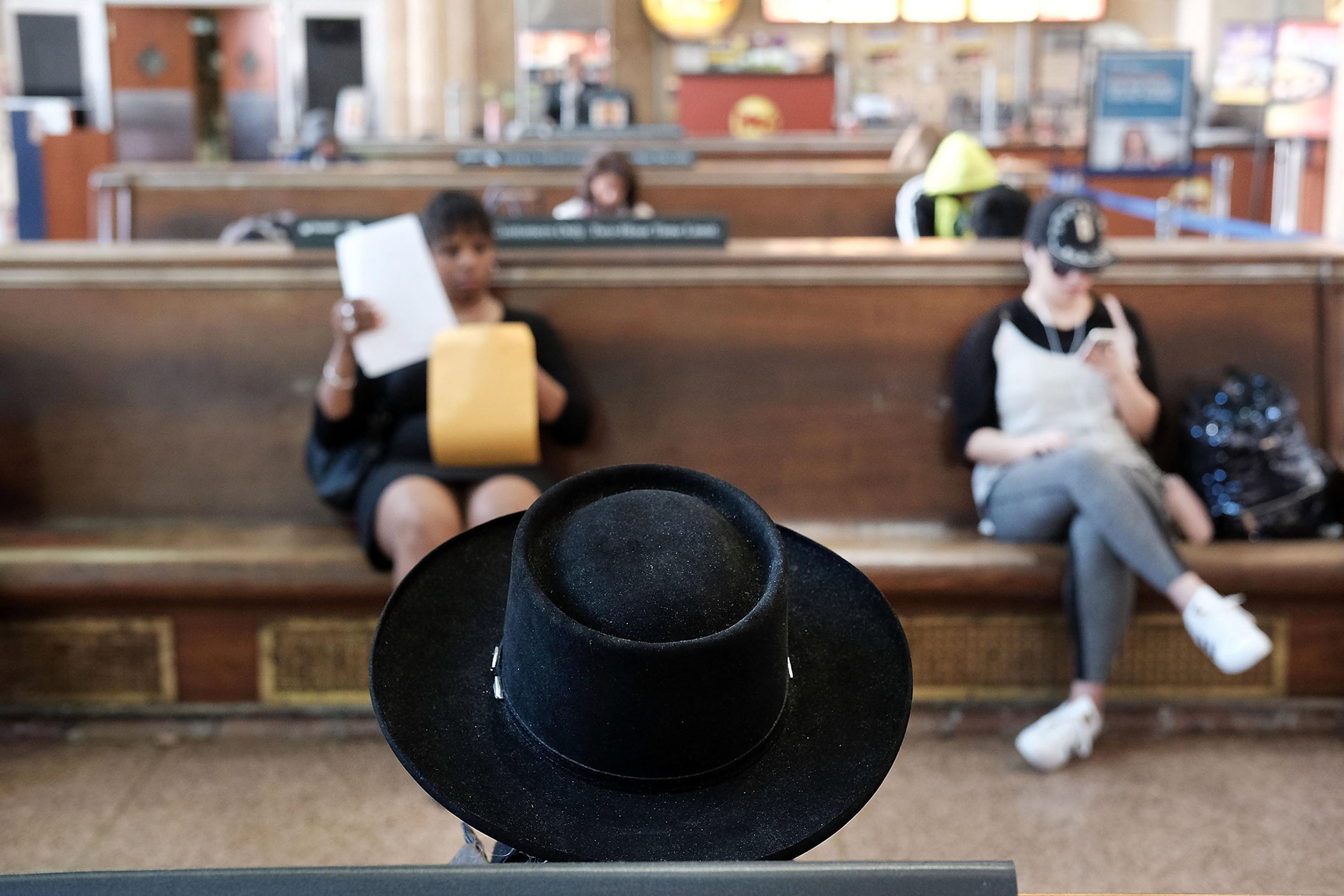You are a polite conversationalist. You never talk too much, always ask questions. You nod and smile at the right times, listen patiently to monologues, sometimes even laugh at bad jokes. You itch to get away but never do without a believable excuse. It is hard and boring work, and you know it. Still, you do it. You do it because you are not an asshole – but wouldn’t it be nice if you could be one, just a little bit?
Take this as a kind of defence. I’m not saying you should become an asshole for good, but there is an aspirational element to it. Maybe you’ve realised that there is something missing from your conversations, or that you’ve had one too many bad ones. Maybe you are too polite for your own good. Maybe you are so polite that people leave a conversation without ever getting to know you. Being a conversational asshole might not sound so bad when you reconsider what conversations are all about.
Each conversation exists in a particular mode – chit-chat, small talk, professional, gossip, intimate, banter, and thousands of others. Figuring out which we are in is the first thing we do when we begin interacting with someone, since each mode comes with its own norms. If you let someone go on with their gossip only to declare at the end that you will go and tell others now, you’ve betrayed them in an important way by breaking the norm. Similarly if you derail an important work meeting just to flirt with your boss.
The mode can, however, change through the course of the conversation. We might start with small talk, until I lean in and hold your hand to ask: Can I be honest with you? Now the trite remarks of small talk are outside the realm of acceptability; we have to at least pretend to be frank. And often these shifts happen without warning. They happen because one side decides to say something that would fall outside the current mode, and the other feels compelled to accommodate them – this, at least, is how the philosopher David Lewis might explain it.
In 1979, Lewis wrote a paper called ‘Scorekeeping in a Language Game’. The point was to bring out the often-neglected rules underlying the dynamics of conversations, which have a ‘scoreboard’ like baseball games, keeping track of the various components of conversation. Unlike baseball, however, conversational games have a special set of rules: the rules of accommodation.
The general idea isn’t so different from the ‘Yes, and…’ rule of improv: conversations work like games, but the scorekeeping works in strange ways. Certain actions gain their validity just by being performed, similar to the way I can introduce objects to the scene in improv just by asserting their existence. There were no tracks on the stage until I yelled: ‘Watch out for the train!’ But now that I have, we will all pretend that they were always there.
If I put down my racket and ask you to do the same, you probably will
Conversation is, similarly, a back and forth – a sort of tennis match, if you will. When you decide you want to talk to me, you decide to hit back the ball when I send it your way. So we begin. But there is one caveat: the rules of tennis are determined beforehand; we know how you can gain points, when a ball is out, how to win. The rules of the conversation instead evolve as we go, and so will our expectations of each other.
This means that, sometimes, I might end up making a move that you did not foresee, that you didn’t even think permissible. Maybe I suddenly make a run for the bleachers and serve from the higher altitude, or maybe I put down my racket and ask you to approach the net, so we can simply hand each other the ball back and forth as we stare deeply into each other’s eyes. It is certainly within your powers to say no and walk away. But you don’t have to. Maybe you want to continue the interaction, so you are willing to follow my lead. Maybe you just want to see where it goes, out of curiosity. Maybe this is something you have always wanted to do.
More likely, your ability to walk away is not the first thing that occurs to you. It is not how we are built. If I put down my racket and ask you to do the same, you probably will, and if I lean in and ask for honesty, you will nod, because the rules of accommodation are deeply engrained in all of us.
The fact that most of us are accommodators means that conversations are ready for hijacking. Lewis talks about the master and slave in a conversation – the master deciding what is permissible, the slave accommodating it. There are times when Lewis is right about the clear divide, like when you talk to your boss or your mum. More often, different people take the lead at different times, and assholes most of all.
An asshole is someone who generally does what they want to do. Someone who has freed themselves from the expectations and obligations of society, typically to our dismay. They are the person who talks about themselves too much, who keeps secrets only when it serves them, who brings up topics that interest only them. They are, in other words, someone who is not attuned to the mode of conversation or changes the mode to fit their purpose. But they are also people you can actually get to know in conversation; people who won’t just provide generic responses but will bring something of who they are into the conversation.
The key to impolite conversation is to learn how to be part asshole. To be able to play with the rules of conversation; to know that politeness and norms can be sacrificed for intimacy and connection, without becoming wholly insensitive. To learn, in other words, that you can drop the racket and approach the net if you want to, because if your conversational partner approaches it too, then you’ll discover something.
When we choose to talk, it’s because we hope we see the world similarly enough to feel connected
There is a fact that is easy to appreciate about humour. When I make a joke, I don’t just want you to laugh: I want you to laugh because you get it. We take a risk when we joke with each other, since we don’t explain the background necessary for the joke to work. The point is to see that we already have that shared common ground. Your laughter marks a kind of success. It tells us something about how the two of us can fit together.
In his book Jokes: Philosophical Thoughts on Joking Matters (1999), the philosopher Ted Cohen explains that laughter marks a special occasion:
It is already noteworthy that we laugh at all, at anything, and that we laugh alone. That we do it together is the satisfaction of a deep human longing, the realisation of a desperate hope. It is the hope that we are enough like one another to sense one another, to be able to live together.
A similar thing can happen in conversation, but it is more subtle. When we choose to talk, it is because we hope we see the world similarly enough that we can feel connected. Often we try to establish this through the content of what is being said, which reveals that we’ve had similar experiences and heartaches. But we can also do it by playing the conversational game, by jumping around the different modes, hijacking the rules.
We can establish intimacy in conversation by discarding norms. In fact, we have to discard norms; we have to step outside what is expected to know that we are enough like one another to sense each other. It is fun and good to play tennis, but when we begin to break the rules together, I can know that, in some sense, you are like me. You are a person who won’t call me out when I approach the net, who will laugh along when I start handing you the ball, who will start the intimate staring contest of your own volition. That’s how I know we can be close. It doesn’t work if I have to prespecify the rules, just like it won’t work if I first explain the background to a joke. I’m taking a risk: I don’t know if you are willing to play the game, if you might be uncomfortable. But I need to take the risk of being an asshole to see that you can play with the rules with me.
This is the conversational asshole I invite you to be. To move from small talk to asking a serious question, and back to making silly jokes. To create little games and ask others to join without sharing the rules. To disclose strange parts of yourself and hide the ones most routinely shared. I invite you to become more playful in how you approach others. I do so not because I’m oblivious to the safety afforded by norms; maybe you will end up confusing or offending someone. And yes, you have to take the risk of them not getting it, or not getting you. It might just be worth it, because if they do get it, then you’ll know you’re not alone.








